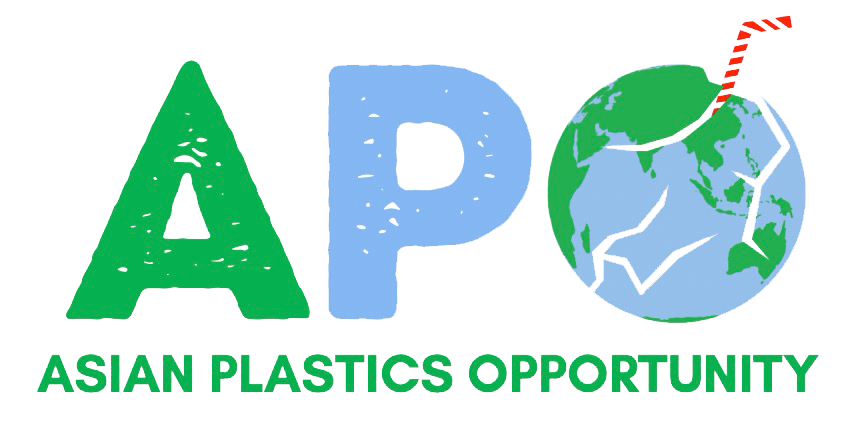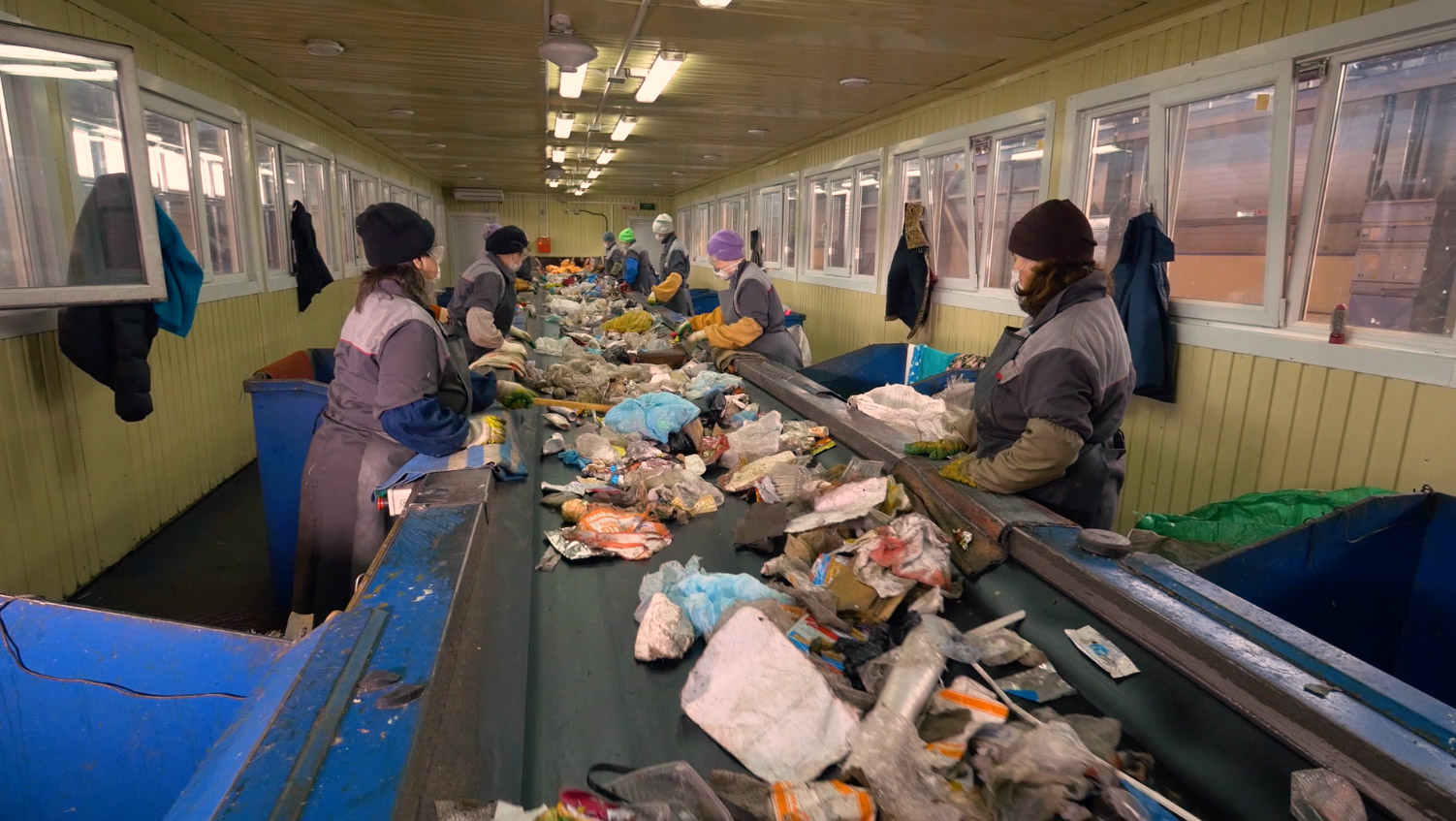A mIcro-solution to the mAcro problem
APO provides 100% recycling of (plastic) waste through community-based waste management and micro-recycling infrastructure that is suited for Developing Country conditions.
APO SOLUTION
Our aim is to provide sustainable, high quality and CO2-free solutions for the recovery and recycling of resources from (plastic) waste streams. Since plastics have an energy value higher than coal, the landfilling of end-of-life plastic waste constitutes a loss of an important energy resource. We utilise environmentally-responsible technology to provide recycling raw material under highest quality standards and to produce renew-able and sustainable green energy.
BASED ON REAL-WORLD SOLUTIONS
APO was set up by Holger Borchert, following years of experience at the forefront of plastic pollution reclamation from our oceans.
As a father of two, living in Hong Kong and working as an independent entrepreneur in Asia for almost three decades, he one day decided to create the APO concept as a peoples’ movement to fight both, plastic insanity and global climate change. He is supported by a great team of international experts with profound knowledge and experience.
EMPOWERS COMMUNITY-BASED ACTION
The APO solution empowers governments, local communities, businesses and even individuals to take action into their own hands through community-based waste management and local micro-recycling infrastructure that suits local conditions and provides 100% recycling of plastic pollution, while reducing the overall CO2 footprint of waste treatment and energy production at the same time.
APO W2E systems
are sustainable, economically reasonable and environmentally responsible
APO SOLUTION PROVIDES JOBS AND INCOME FOR LOCAL COMMUNITIES
By combining new technologies, 100% of recovered plastic waste can now be recycled or turned into reusable energy, either gas or fuel. This brings sustainable jobs and income for the local community, in addition to those provided by community-based waste collection and management infrastructure.
APPROVED TECHNOLOGY
APO by definition does not depend in any way on any specific technology or supplier. As a fully independent provider of (plastic) waste processing and energy generating solutions we select and combine several different proven technologies in one system, according to local needs and conditions of each single project. The system’s local operation is handled in close cooperation with the licensed partners and for the multiple benefit of local communities.
We mainly focus on small-size, decentralised systems with a high flexible, modular, container-based design of all single aggregates. This enables us to quickly set up this environmentally responsible and profitable (plastic) waste conversion concept in almost any location on the planet, exactly where the problem occurs. We do not depend on any prior required infrastructural measures neither in front nor behind our facilities.
Instead of over dimensioning single systems, we simply scale numbers of our small aggregates to properly address bigger emerging waste volumes. According to the local project needs, we design every unit from scratch and therefore combine and install single modules from different suppliers and deliver customised plug & play solutions. We start with the smallest amount of 100kg plastic per day and unit. For a purely commercial approach, we operate at a capacity of 1 to 5t/h of feedstock.
PyRolysis/CatalyTiC CONVERsION for
BIOMASS TO FUEL (Bio diesel & Syngas)
USED TIRES TO FUEL (Bio diesel & Syngas)
oil residues to FUEL (Bio diesel & Syngas)
MUNICIPAL WASTE TO FUEL (Bio diesel & Syngas)
Plastic to FUEL (Bio diesel, Hydrogen & Syngas)
PROCESS WASTE HEAT TO ELECTRIC ENERGY
APO – WASTE STREAM CONCEPT
Subject to local needs and conditions regarding volume, type and quality of (plastic) waste feedstock and access to the global recycling industry, the feasible technologies vary in type, capacity, products and efficiency. Therefore we identify different streams for the plastic waste processing concept. Get in touch and find out more!
By using recycling, catalytic conversion and gasification, we generate high-quality recyclate, electrical power, fuel oil and other valuable chemicals from the collected plastic waste according to the local needs.
Collection (landscape & beach clean ups, maritime waste collection, etc.)
Transportation to and collection at local W2E units
Recycling of plastic material and energetic recovery (plastic to energy)
Decentralised local feed-in/usage of fuel, electric power & heat/cooling
Global marketing of other products/commodities with contractual partners
EXTRACTING HIGH ENERGETIC FUELS FROM PLASTIC WASTE (PTF/PTO)
Over the past few years, plastics-to-fuel (PTF) technologies have emerged as a potential solution to reducing plastic marine litter and the landfilling of end-of-life plastics. PTF is an advanced waste conversion technology that is considered complementary to existing recycling efforts as it typically does not target plastic resins that are highly valued by global commodity recycling markets.
Through different configurations of pyrolysis technologies, the principal output of PTF technologies is a liquid petroleum product - either a synthetic crude oil or refined fuels which can be used as home heating oil (fuel oil No.2), diesel fuel, gasoline and kerosene, fuel for combined heat and power generation equipment and industrial purposes and residual fuel oils for sale to heavy oil users. In many parts of the world, liquid petroleum products derived from plastics represent a low-sulphur content product, yielding air quality benefits as well.
In fact, our fuel can be produced and dispensed at the same location.
The production of fuel from a domestically available renewable resource at an efficient and economical rate will provide the coming “100% Plastic Waste Free Economy” with its own set of financial and environmental benefits. Performing an 1:1 ratio our system works incredible efficient. With one kilogram of PE/PP plastic waste we generate 1 litre fuel/oil under most competitive market prices. Other plastics reach a 80% efficiency rate.
Our innovative processes of generating fuel/oil out of plastic wastes are completely cohere, with no critical emissions and therefore harm-less for the environment. With our integrated APO CARBON OFFSET PROGRAM we sustainably minimize users carbon footprint by 100% at the same time.
Plastic To Oil/Fuel
EXTRACTING METHANE FROM PLASTIC WASTE (PTM)
We specialise in providing solutions to waste disposal issues, by utilizing these wastes to generate methane for the use of a substitute for electric power and heat generation out of hydrocarbon fuels, coal and others.
Methane has the potential to provide energy for stationary conversion devices (CPHU, NGPG), as well as for electrical and heat/cooling energy such as use for heating, hot water generation and air conditioning.
In fact, methane can easily be produced, stored and dispensed at the same location. The production of methane from a domestically available renewable resource at an efficient and economical rate will provide the coming “100% Plastic Waste Free Economy” with its own set of financial and environmental benefits.
Based on our local, decentralised and small scaled approach, all the extraction of fuel/oil, hydrogen and methane out of plastic wastes, are highly efficient, sustainable and ecologically high in value for every community in Asia.
100% Plastic Waste RecyclING
Over the past few years, plastics-to-fuel (PTF) and also new plastics-to-gas (PTG) technologies have emerged as a potential solution to reducing plastic marine litter and the landfilling of end-of-life plastics. PTF/PTG is an advanced waste conversion technology that is considered complementary to existing recycling efforts as it typically does not target plastic resins that are highly valued by commodity recycling markets.
Furthermore, since plastic has an energy value higher than coal, the landfilling of end-of-life plastic waste constitutes a loss of an important energy resource. Not intended as a replacement to traditional recycling practices, but given the large percentage of plastic waste that bypass recycling programs for reasons such as lack of infrastructure, capacity, and technology, PTF/PTG is becoming a viable addition to a jurisdictions mix of MSW management strategies.
By creating demand for end-of-life plastics, PTF/PTG technologies can not only help address this global challenge and mitigate the flow of plastic to the ocean, but can also create jobs and generate an alternative local fuel/gas source that can serve as a substitute to fossil fuel derived crude oil.
In many parts of the world, natural gas / liquid petroleum products derived from plastics represent a lower-sulphur content product, yielding air quality benefits as well.
Our “100%-Plastic-Recovery-Concept” sets together from five different steps:
1. Plastic Recycling
2. PTO: Plastic to Oil
3. OTF: Oil to Fuel
4. PTG: Plastic to Gas(methane)
5. PTE: Plastic to Energy (elec./ heat power)
climate change
The APO contribution to the climate change crisis
Generating non fossil high quality (bio-) fuels using bio waste and/or plastic waste as feedstock.
Generating green hydrogen directly from plastic waste.
Project developing under VCM-compatible standards.
Remote Control Center (RCC): combining 24/7/365 worldwide real time remote system control and automated data reading with advanced services for our licensed partners and customers.






